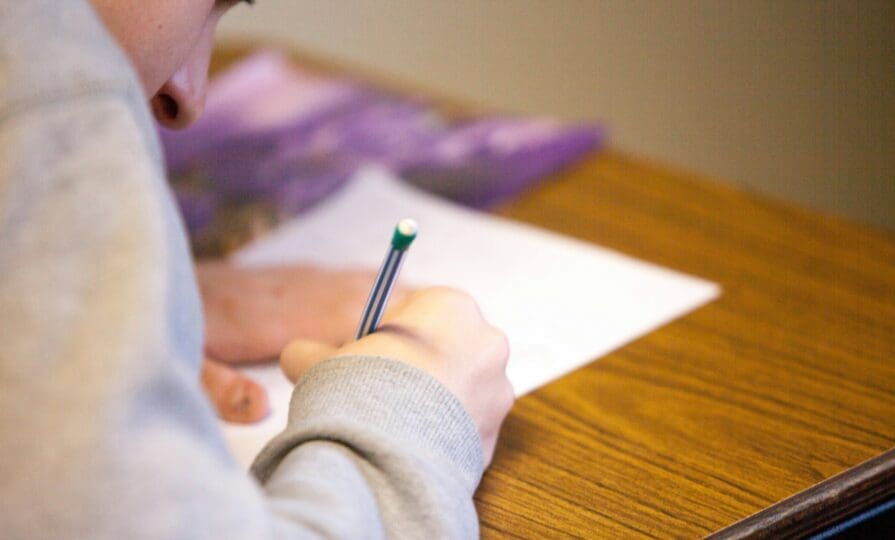Poorer pupils more likely to drop out of A levels than get top STEM grade
Those eligible for free school meals (FSM) accounted for just 9% of A level students, and only 8% of A level entries in STEM subjects

Register to get 1 free article
Reveal the article below by registering for our email newsletter.
Want unlimited access? View Plans
Already have an account? Sign in
Pupils from disadvantaged backgrounds are being “shut out” of the UK’s top-performing and best-paid career paths due to a lack of equal opportunity, according to new data analysis from Teach First.
Following this week’s A level results, the education charity found that disadvantaged pupils were twice as likely to drop out of A levels altogether than get an A* in a STEM subject.
Despite making up a quarter (25%) of all Year 11 pupils, those eligible for free school meals (FSM) accounted for just 9% of A level students, and only 8% of A level entries in STEM subjects.
The charity found that for pupils from disadvantaged backgrounds who do progress to A levels, only 5.5% of STEM exam entrants who are eligible for FSM also earn the top A* grade. In addition, 13% of all A level students eligible for FSM drop out before even finishing.
In contrast, amongst more affluent peers, 14% achieved A* in STEM subjects, while only 7% dropped out, making them twice as likely to earn top grades than to leave their studies early.
Teach First found that the pattern of pupils on FSM being less likely to achieve top results repeats across individual STEM subjects:
- Physics: FSM pupils are three times less likely to achieve an A* than their more affluent peers (3% vs 12%)
- Maths: FSM pupils are half as likely (9% vs 18%)
- Further Maths: FSM pupils are half as likely (15% vs 30%)
- Computer Science: FSM pupils are six times less likely (1% vs 6%)
James Toop, CEO of Teach First, said: “It’s simply unacceptable that young people from poorer backgrounds are more likely to drop out of A levels altogether than achieve top grades in STEM. This isn’t about talent, it’s about opportunity.
“We know that great teachers make the difference: when the best teachers are in the schools that need them the most, pupils stay, thrive, and succeed. If we’re serious about a fairer, more prosperous future, the government must do everything possible to get brilliant teachers where they’re needed – ensuring no child is left behind.”
David Scales, principal of Astrea Academy Woodfields, Doncaster, added: “Too many disadvantaged pupils are still more likely to drop out of A levels than achieve top grades in STEM. It’s not that they have lower ability in these subjects, but that their access is limited far earlier on.
“My school is turning this around, but only with the right support and a strong team of expert teachers. This kind of success shouldn’t depend on where a child grows up. Government must invest in better pay and targeted support to get the best STEM teachers into the schools that need them most.”

